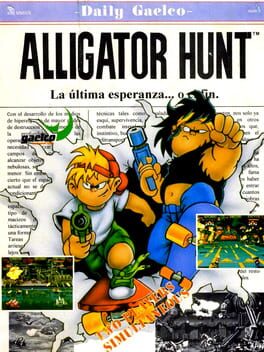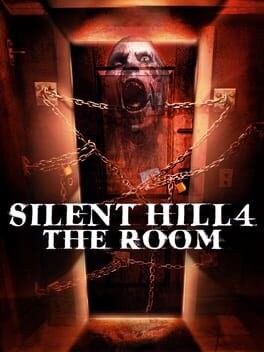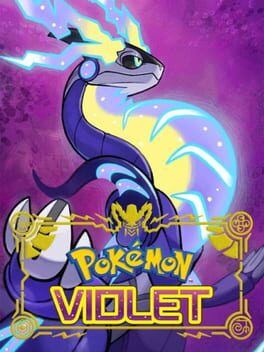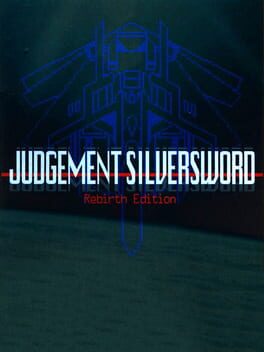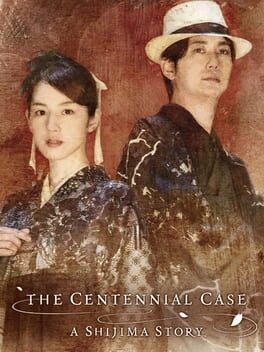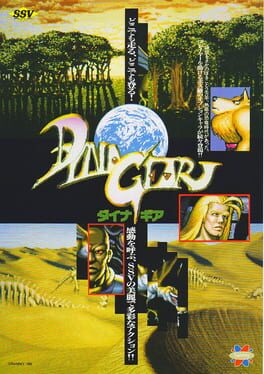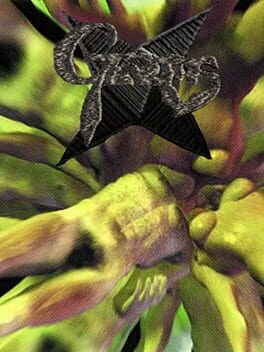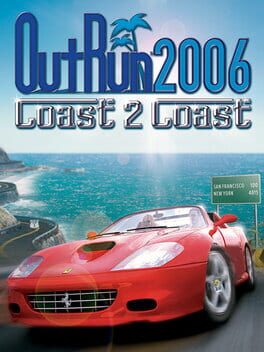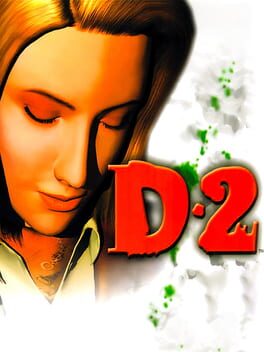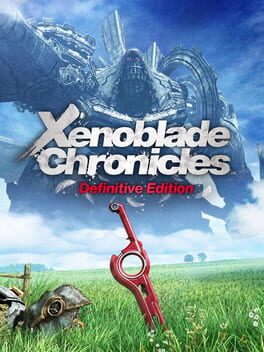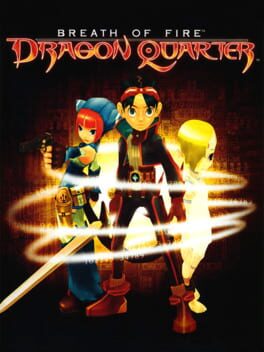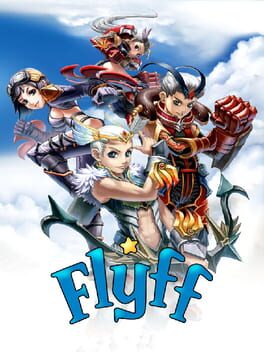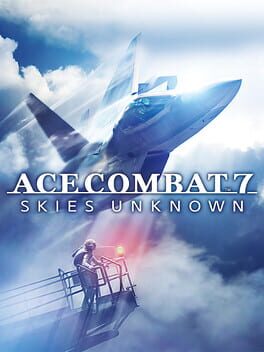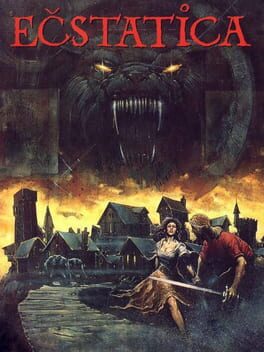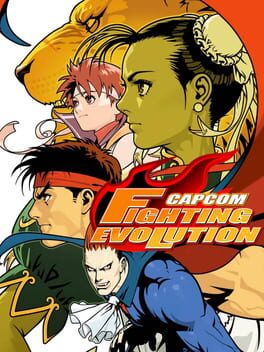hazys
583 Reviews liked by hazys
Alligator Hunt
1994
Being on this website means I’m likely in proximity to the densest population of Silent Hill 4 fans per internet-mileage. It really cannot be overstated just how steep the dropoff in numbers is from the average SH fan to one that’s played, let alone likes SH4. And it’s not hard to see why, frankly. It’s a challenging experience even within its series’ context, which says a lot considering the comparison points. Honestly, outside of plot, previous experience with the series HARDLY prepares you - it’d be a lesson in frustration to approach this game with the same lens or expectations as SH1-3. Credit where it’s due though, that knotted, at times appalling temperament SH4 carries is attractive in its own way. While I’d hesitate to call it a wholly innocent victim of its reception, I still think it’s plenty deserving of this simmering enthusiasm which has cropped up on the outskirts of Silent Hill fandom.
Everyone who plays it can speak to the all-out bonkers audiovisuals - however, I do think that the malaise emanating off of this game extends beyond its surface. Despite being the most standoffish of the games, it’s still just as interested in character work as the others. After showing up and then some with the characters in their previous two games, it’s clear they were after something different here. It’s hard to put my finger on it, but there’s a muted, uncanny veil over the game which hadn’t been there previously. And these things in tandem lead to some odd bits, like Henry’s VA’s brand of anti-charisma choking the life out of every sentence from his mouth (he doesn't even speak that much to begin with), or the brief, cursory nature of the to-be sacrament encounters.
Does it fail itself in this regard? No, not necessarily, though the experience is undeniably colored by these things, and I’d be lying if I said it was batting .1000. It’s hard not to feel like this game’s pacing and presentation is a little more matted and coarse than the ones before it, and I’m sorry, but this pairs with the languid and sometimes even grating first half a little unpleasantly (and yes, I do acknowledge the irony of complaining about the first half of a game with a notoriously hellish second half, stick with me). I’ll put it this way: if there was ever an accomplice alongside the heavy emphasis on its half-baked combat that tanked this game’s reception, I’d point fingers in that direction. I’m trying to avoid outright comparisons to the previous games, but we are an ocean’s distance from Angela’s mirror scene or Heather’s gutting car ride speech as far as sauce goes.
And yet, it’s still not that easy to cast off, is it? I truly cannot stand the term “polish” (pah-lish, not poe-lish. I just rated The Witcher 3’s DLC highly, I’ll have you know) with regards to game quality, but in SH1-3’s case, I think you’d be hard-pressed to think of better examples for great parts being uninhibited for those experiencing them, and said clarity only helping the end result. SH4 is... simply a different beast.
There’s this omnipresent, dangerous intention fueling the game, infamously and most importantly with the apartment itself, that ends up making a hell of a case for the rest of it. Its entire being is one of pure malevolence, and you aren’t really expected to handle any of it well. SH4 is the video game equivalent of that brief physiological meltdown you have realizing you’re covered in skin that’s sensitive and prone to injury with one wrong move, timestreched to 7 or 8-ish hours depending on how many extras you collect. It ain’t pretty, but does it really need to be?
The second half, particularly the final quarter, is exhausting and confusing and straight up BRILLIANT. People have spoken plenty to the room hauntings and whatnot, but I think my favorite bit of this half is the sacrament ghosts returning and even PERSISTING should you fail to pin them down. And that’s just one little detail - in execution, there’s several more vital bits caving in on you while you descend to the finish line (which is also insane). I was honestly a little shocked to discover that not only did I think this halftime switch-up was effective, I thought it was great; then again, I have a perfect run of Dead Rising 1 under my belt (360 btw, no big deal), so perhaps I’m just built different.
(side note: speaking of Dead Rising, Eileen’s AI is actually pretty good? Sure, the pathfinding’s imperfect, but she’s capable offensively, so long as you unequip her weapon when you don’t want to fight (which, considering she’s otherwise completely uncontrollable by the player, is lowkey impressive). I can’t help but feel like the general parroted hatred of escort missions tainted the consensus of this part of the game, which is ridiculous to me. A core theme of this game is altruism and you’re complaining that she gets stuck sometimes? L. Simply put.)
I could talk about this game more, but this is getting long and I’m clearly rambling. But in a way, that’s kind of the best part about SH4? It’s more hushed reception and far weirder take on Silent Hill as a concept means there’s still quite a bit of cud to chew on here. I dissed him earlier a lil bit, but Henry’s distant protagonisms end up meaning that a lot of this game’s more complicated ideas are mere suggestions from the environment or memos. Considering how depressed I should be that after years of procrastinating, I’ve finally finished what might be the greatest quadrilogy of games ever developed, I have a feeling that there’s still something to be gained here. And, selfishly, as a fan of these games, I’m pretty fuckin’ pumped about that.
Everyone who plays it can speak to the all-out bonkers audiovisuals - however, I do think that the malaise emanating off of this game extends beyond its surface. Despite being the most standoffish of the games, it’s still just as interested in character work as the others. After showing up and then some with the characters in their previous two games, it’s clear they were after something different here. It’s hard to put my finger on it, but there’s a muted, uncanny veil over the game which hadn’t been there previously. And these things in tandem lead to some odd bits, like Henry’s VA’s brand of anti-charisma choking the life out of every sentence from his mouth (he doesn't even speak that much to begin with), or the brief, cursory nature of the to-be sacrament encounters.
Does it fail itself in this regard? No, not necessarily, though the experience is undeniably colored by these things, and I’d be lying if I said it was batting .1000. It’s hard not to feel like this game’s pacing and presentation is a little more matted and coarse than the ones before it, and I’m sorry, but this pairs with the languid and sometimes even grating first half a little unpleasantly (and yes, I do acknowledge the irony of complaining about the first half of a game with a notoriously hellish second half, stick with me). I’ll put it this way: if there was ever an accomplice alongside the heavy emphasis on its half-baked combat that tanked this game’s reception, I’d point fingers in that direction. I’m trying to avoid outright comparisons to the previous games, but we are an ocean’s distance from Angela’s mirror scene or Heather’s gutting car ride speech as far as sauce goes.
And yet, it’s still not that easy to cast off, is it? I truly cannot stand the term “polish” (pah-lish, not poe-lish. I just rated The Witcher 3’s DLC highly, I’ll have you know) with regards to game quality, but in SH1-3’s case, I think you’d be hard-pressed to think of better examples for great parts being uninhibited for those experiencing them, and said clarity only helping the end result. SH4 is... simply a different beast.
There’s this omnipresent, dangerous intention fueling the game, infamously and most importantly with the apartment itself, that ends up making a hell of a case for the rest of it. Its entire being is one of pure malevolence, and you aren’t really expected to handle any of it well. SH4 is the video game equivalent of that brief physiological meltdown you have realizing you’re covered in skin that’s sensitive and prone to injury with one wrong move, timestreched to 7 or 8-ish hours depending on how many extras you collect. It ain’t pretty, but does it really need to be?
The second half, particularly the final quarter, is exhausting and confusing and straight up BRILLIANT. People have spoken plenty to the room hauntings and whatnot, but I think my favorite bit of this half is the sacrament ghosts returning and even PERSISTING should you fail to pin them down. And that’s just one little detail - in execution, there’s several more vital bits caving in on you while you descend to the finish line (which is also insane). I was honestly a little shocked to discover that not only did I think this halftime switch-up was effective, I thought it was great; then again, I have a perfect run of Dead Rising 1 under my belt (360 btw, no big deal), so perhaps I’m just built different.
(side note: speaking of Dead Rising, Eileen’s AI is actually pretty good? Sure, the pathfinding’s imperfect, but she’s capable offensively, so long as you unequip her weapon when you don’t want to fight (which, considering she’s otherwise completely uncontrollable by the player, is lowkey impressive). I can’t help but feel like the general parroted hatred of escort missions tainted the consensus of this part of the game, which is ridiculous to me. A core theme of this game is altruism and you’re complaining that she gets stuck sometimes? L. Simply put.)
I could talk about this game more, but this is getting long and I’m clearly rambling. But in a way, that’s kind of the best part about SH4? It’s more hushed reception and far weirder take on Silent Hill as a concept means there’s still quite a bit of cud to chew on here. I dissed him earlier a lil bit, but Henry’s distant protagonisms end up meaning that a lot of this game’s more complicated ideas are mere suggestions from the environment or memos. Considering how depressed I should be that after years of procrastinating, I’ve finally finished what might be the greatest quadrilogy of games ever developed, I have a feeling that there’s still something to be gained here. And, selfishly, as a fan of these games, I’m pretty fuckin’ pumped about that.
Pokémon Violet
2022
This game is SO AWESOME! But I'm not good at it but that's OK because just wow that was just an experience playing all of that. I can't believe just what even happened. Like the Wonderswan can do that? It's a shame I'm like a million leagues away of being good at this stuff because I could see this being one of the best games ever but sadly I'm just a loser who has to use rewind. It's easily worth a look if curious.
Overall a disappointment, I think. A much more passive game than I was expecting - the only reason to even hit the interact prompts during the cutscenes is because you get achievements for them - and the actual gameplay is mostly pretty slow and clunky. The game switches things up a little in Chapter 5 and becomes a little more Myst-like, and I think it would have been better served if the whole game was like this, investigating crime scenes and so on - and I don't even particularly like Myst!
Wasn't a big fan of the how the story ended up, either - I think the specifics of who the culprits are and the details of the Tokijiku are a pretty weak resolution, especially considering the themes that these Old Family detective stories tend to be couched in, and having the finale hinge on a big emotional hook doesn't really work for me when playing a hokey FMV game, especially one where the main thing I want to know is the trick, not the motivations. Get this J-drama flim-flam outta here!!
There are some parts I like - the initial case at the auction and the nightclub case, those are good. I say the cutscenes are hokey but I like that, FMV games are supposed to be hokey! And I like all the references to things like Shin Seinen magazine and the roots of popular detective fiction in Japan. Shin Seinen is also the name of a real good Ningen Isu album, give that a listen.
Wasn't a big fan of the how the story ended up, either - I think the specifics of who the culprits are and the details of the Tokijiku are a pretty weak resolution, especially considering the themes that these Old Family detective stories tend to be couched in, and having the finale hinge on a big emotional hook doesn't really work for me when playing a hokey FMV game, especially one where the main thing I want to know is the trick, not the motivations. Get this J-drama flim-flam outta here!!
There are some parts I like - the initial case at the auction and the nightclub case, those are good. I say the cutscenes are hokey but I like that, FMV games are supposed to be hokey! And I like all the references to things like Shin Seinen magazine and the roots of popular detective fiction in Japan. Shin Seinen is also the name of a real good Ningen Isu album, give that a listen.
Dyna Gears
1994
D2
1999
I really feel like I should hate this for its frequent, sometimes long and always self-indulgent cutscenes that tell the most batshit plot I've ever seen, as well as for its slow and repetitive gameplay, but there's something so charming about it that kept me hooked till the end. Exploring the snowy landscapes, hunting animals and blasting away at The Thing-lookin' ass monsters in surprisingly functional combat sequences all has sort of a relaxing quality, and the characters are actually pretty interesting despite their places in whatever the fuck this story's supposed to be. I'm not sure if I'd ever play it again, but I'm glad I finally gave it at least one go.
Half of the review is obvious thoughts on the genre of the jrpgs to give some context
"This is a tiny tale of time"
A colorful punk brushstroke in the genre "JRPG". DRAGON QUARTER (DQ) was born as a response to its own saga and its own anthology, sticking to its more classic elements but readjusting the more established elements that seem to be stylistic features of a genre. that, at the end of the day, they are just comforts;
World.
Time.
Combat.
Movement.
economy.
Drama.
Difficulty.
Trips.
Although I have always had a lot of affection for the cities of Japanese RPGs, the worlds they build seem to me like a lie, not diegetically, but as a sensation entirely. Normally these "worlds" due to their abstract nature born from 2D pixels are flat fields painted with deserts, plains, gorges, whatever you want, but their scale and ability to navigate never changes or affects, perhaps by convention, perhaps because RPGs are already too numerical and schematized to add more nuances to a navigation that, although it has aesthetic detail, is a process between combats and drama, which are also insufficient to transmit something cohesive, since the combats are usually linked to the context of the drama. In JRPGS, the characters are usually forced to travel the world as they become a kind of misunderstood fugitives for whatever reasons, they are in constant tension, sometimes pursued or in a race against time and they are supposed to be travelers, with resources and cargo. limited. curiously, the player can take all the time in the world, can go wherever he wants (with relative freedom), the combat is relaxed with enough resources and time does not advance, there is also nothing that translates or symbolizes some kind of mental or spiritual fatigue, if there are mana tonics and potions and such but that shouldn't cure stress or fear. And one thing, the protagonists, usually kids with great hearts, eager or not for adventure and wanting to discover the world, ambitious but without a clear vision of how the world works and how they want to be part of it ... Or depressed boys because Their giant and extremely cool sword weighs too much or the spikes of their hairstyles are not very perfect, whatever.
All of this will sound like obvious points, but exemplifications of some problems that lead to dissonant experiences for me, which should be an exciting and emotional adventure through a magitechnological world in which danger and joy come together and innocence gives way to Maturity ends up being a smooth and comfortable walk through a flat field where everything is static and the drama tries to deceive me, and all because JRPGs are supposed to be like that, that's the way the genre is.
Dragon Quarter (DQ) seems to be aware of this dissonant base and chooses to eliminate the "JRPG world" and its approach as it is popularly known, but sticking to some of the rules of the game.
it begins by eliminating the world, it does not exist. There are no green meadows or blue skies as far as the eye can see with a city looming around the corner, because there is not even a sky in the world that DQuarter takes place. people are forced to live in an underground world as deep as it is depressing, there are hardly any resources or space, the air is almost a precious commodity and only a dictated community order is what seems to work. It is not a world, but a succession of interconected corridors neither freedom nor space, there are no real cities or safe havens at all. In the middle of this dystopia is the protagonist, a young cop named Ryu (like all the protagonists of the BoF saga https://bof.fandom.com/wiki/Ryu) disappointed with life and living in the shadow of his friend ( cliche). During a mission he discovers that the government is experimenting with a girl (https://bof.fandom.com/wiki/Nina), he decides to rescue her and flee with her, acquiring the power to transform into a human-dragon hybrid that it becomes almost invincible, but with a high price to pay for abusing it.
With this starting point DQuarter establishes a drama accompanied by its mechanics and its formalities.
We are fleeing from a government and its army with powerful generals (bosses) crossing a world full of monsters, so taking distance between the pursuers and the obstacles seems to be the most sensible thing, the director Makoto Ikehara and his team opts to raise the difficulty and design a combat around space and the management of movement and resources, but without a board or squares, all on a proportional scale and moving away from pseudonaturalist spaces where to position correctly and wisely use the skills to efficiently attack groups of enemies and exploit improvised strategies to generate distance with us and between them is the key to survival, (combat has more complexities, but it is worth discovering them for yourself). But the most important element and that symbolizes both the urgency of time, and the deterioration of the group (those things that JRPGs tend to ignore) It's the D-Counter mechanic, which regulates the player's usage of the dragon transformation ability, penalizing and eventually punishing overuse of dragon related abilities. If the D-Counter reaches 100% before a certain event in the game, the player will receive a game over, so they can go back to the last save point or start the game again keeping all the equipment and experience, however When starting the trip again, new scenes and dialogues will appear revealing little by little, and with each defeat the truth about everything that is happening and suggesting more consistently the value of accepting defeat as opposed to those JRPGs with blue skies that seem to want to avoid let the player experience it.
DQuarter replaces joy and color for oppression and lack of natural sunlight, it is a game that replaces the simplicity of the classic turn-based combat system with a complex balance of movement, combo strings of attacks with various properties and is not afraid of being difficult or brutal, or remind you that death constantly stalks you through a HUD number. is not afraid to deliver a Cheat Code in the form of mechanics or risky narrative approaches.
It's a gutsy game in a very stagnant genre and an imperfect (lol) masterpiece, and its end, could not be anything other than a sight of a blue sky.
"This is a tiny tale of time"
A colorful punk brushstroke in the genre "JRPG". DRAGON QUARTER (DQ) was born as a response to its own saga and its own anthology, sticking to its more classic elements but readjusting the more established elements that seem to be stylistic features of a genre. that, at the end of the day, they are just comforts;
World.
Time.
Combat.
Movement.
economy.
Drama.
Difficulty.
Trips.
Although I have always had a lot of affection for the cities of Japanese RPGs, the worlds they build seem to me like a lie, not diegetically, but as a sensation entirely. Normally these "worlds" due to their abstract nature born from 2D pixels are flat fields painted with deserts, plains, gorges, whatever you want, but their scale and ability to navigate never changes or affects, perhaps by convention, perhaps because RPGs are already too numerical and schematized to add more nuances to a navigation that, although it has aesthetic detail, is a process between combats and drama, which are also insufficient to transmit something cohesive, since the combats are usually linked to the context of the drama. In JRPGS, the characters are usually forced to travel the world as they become a kind of misunderstood fugitives for whatever reasons, they are in constant tension, sometimes pursued or in a race against time and they are supposed to be travelers, with resources and cargo. limited. curiously, the player can take all the time in the world, can go wherever he wants (with relative freedom), the combat is relaxed with enough resources and time does not advance, there is also nothing that translates or symbolizes some kind of mental or spiritual fatigue, if there are mana tonics and potions and such but that shouldn't cure stress or fear. And one thing, the protagonists, usually kids with great hearts, eager or not for adventure and wanting to discover the world, ambitious but without a clear vision of how the world works and how they want to be part of it ... Or depressed boys because Their giant and extremely cool sword weighs too much or the spikes of their hairstyles are not very perfect, whatever.
All of this will sound like obvious points, but exemplifications of some problems that lead to dissonant experiences for me, which should be an exciting and emotional adventure through a magitechnological world in which danger and joy come together and innocence gives way to Maturity ends up being a smooth and comfortable walk through a flat field where everything is static and the drama tries to deceive me, and all because JRPGs are supposed to be like that, that's the way the genre is.
Dragon Quarter (DQ) seems to be aware of this dissonant base and chooses to eliminate the "JRPG world" and its approach as it is popularly known, but sticking to some of the rules of the game.
it begins by eliminating the world, it does not exist. There are no green meadows or blue skies as far as the eye can see with a city looming around the corner, because there is not even a sky in the world that DQuarter takes place. people are forced to live in an underground world as deep as it is depressing, there are hardly any resources or space, the air is almost a precious commodity and only a dictated community order is what seems to work. It is not a world, but a succession of interconected corridors neither freedom nor space, there are no real cities or safe havens at all. In the middle of this dystopia is the protagonist, a young cop named Ryu (like all the protagonists of the BoF saga https://bof.fandom.com/wiki/Ryu) disappointed with life and living in the shadow of his friend ( cliche). During a mission he discovers that the government is experimenting with a girl (https://bof.fandom.com/wiki/Nina), he decides to rescue her and flee with her, acquiring the power to transform into a human-dragon hybrid that it becomes almost invincible, but with a high price to pay for abusing it.
With this starting point DQuarter establishes a drama accompanied by its mechanics and its formalities.
We are fleeing from a government and its army with powerful generals (bosses) crossing a world full of monsters, so taking distance between the pursuers and the obstacles seems to be the most sensible thing, the director Makoto Ikehara and his team opts to raise the difficulty and design a combat around space and the management of movement and resources, but without a board or squares, all on a proportional scale and moving away from pseudonaturalist spaces where to position correctly and wisely use the skills to efficiently attack groups of enemies and exploit improvised strategies to generate distance with us and between them is the key to survival, (combat has more complexities, but it is worth discovering them for yourself). But the most important element and that symbolizes both the urgency of time, and the deterioration of the group (those things that JRPGs tend to ignore) It's the D-Counter mechanic, which regulates the player's usage of the dragon transformation ability, penalizing and eventually punishing overuse of dragon related abilities. If the D-Counter reaches 100% before a certain event in the game, the player will receive a game over, so they can go back to the last save point or start the game again keeping all the equipment and experience, however When starting the trip again, new scenes and dialogues will appear revealing little by little, and with each defeat the truth about everything that is happening and suggesting more consistently the value of accepting defeat as opposed to those JRPGs with blue skies that seem to want to avoid let the player experience it.
DQuarter replaces joy and color for oppression and lack of natural sunlight, it is a game that replaces the simplicity of the classic turn-based combat system with a complex balance of movement, combo strings of attacks with various properties and is not afraid of being difficult or brutal, or remind you that death constantly stalks you through a HUD number. is not afraid to deliver a Cheat Code in the form of mechanics or risky narrative approaches.
It's a gutsy game in a very stagnant genre and an imperfect (lol) masterpiece, and its end, could not be anything other than a sight of a blue sky.
Flyff
2005
Ecstatica
1994
Fascinatingly vibeless... The complete absence of a presentation layer exposes it to much harsher criticism than Marvel vs Capcom 2 and Capcom vs SNK 2, two similarly patchwork fighting games that were shielded by beautifully out-there post-millennium aesthetics, belovedly bonkers narration and gameplay so broken that it ultimately freed fighting game players from the shackles of balance. There's no announcer here rambling about the fact he Knows You'll Be Back To The Battle For Survival, and the music is so lifeless that there's nothing the beat can do to distract you from the fact that sprites from 1992 and 2002 are rubbing up against promotional key-art that's been cut out of an old Electronic Gaming Monthly's back pages with rusty scissors. This is NOT true love makin’.
I'm not gonna pretend I know what the balance issues with this game are - nor do I really care to find out - but I gotta admit I do fuck with the core 2v2 concept, which as far as I know is unique to the esteemed Capcom Fighting series: you pick two characters, but there's no obligation to use both - you can keep one as a backup or counter-pick on the second round of a fight, or simply wield them as an empty threat to stop your opponent from choosing one of their own duo. While this is hardly an electrifying concept in a fighting game starring Anakaris and some guy from Red Earth, it could in theory accommodate the appearance of up to eight characters in a classic best-2-of-3 tournament match, which imo is a great enabler of the old fighting game adage that the mind games begin as soon as the character select screen loads. Capcom should think about bringing this back for Street Fighter 6 or some other fighting game where they remembered to crop the versus screen portraits correctly.
As far as the actual fighting goes, it's worth emphasising how much characters handle like the game they belong in - you can straight-up play 3rd Strike Chun in this game with almost zero adaptation of the gameplan you've been sleepwalking with since 2006, but apparently I don't know shit because she's in F-tier along with Zangief (what's new lol) and Yun (whaaaaat?!) here. Apparently being able to parry all of Demitri's firebullshit doesn't count for much. It's funny that she even makes the exact same noises when you mash out bHP! It's almost as if these characters were dragged and dropped directly into the game without any real balance consideratio - no... it couldn't be... C-C-Crapcpom... lazily bashing together... a versus fighting game... to capitalise on a sales t-trend... n-noo... never...
I'm not gonna pretend I know what the balance issues with this game are - nor do I really care to find out - but I gotta admit I do fuck with the core 2v2 concept, which as far as I know is unique to the esteemed Capcom Fighting series: you pick two characters, but there's no obligation to use both - you can keep one as a backup or counter-pick on the second round of a fight, or simply wield them as an empty threat to stop your opponent from choosing one of their own duo. While this is hardly an electrifying concept in a fighting game starring Anakaris and some guy from Red Earth, it could in theory accommodate the appearance of up to eight characters in a classic best-2-of-3 tournament match, which imo is a great enabler of the old fighting game adage that the mind games begin as soon as the character select screen loads. Capcom should think about bringing this back for Street Fighter 6 or some other fighting game where they remembered to crop the versus screen portraits correctly.
As far as the actual fighting goes, it's worth emphasising how much characters handle like the game they belong in - you can straight-up play 3rd Strike Chun in this game with almost zero adaptation of the gameplan you've been sleepwalking with since 2006, but apparently I don't know shit because she's in F-tier along with Zangief (what's new lol) and Yun (whaaaaat?!) here. Apparently being able to parry all of Demitri's firebullshit doesn't count for much. It's funny that she even makes the exact same noises when you mash out bHP! It's almost as if these characters were dragged and dropped directly into the game without any real balance consideratio - no... it couldn't be... C-C-Crapcpom... lazily bashing together... a versus fighting game... to capitalise on a sales t-trend... n-noo... never...
